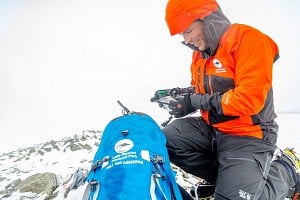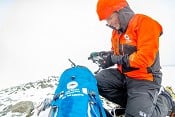In reply to graeme jackson:
This I can help on, as I went through the process you need a few years ago when we got our CPAP camping set-up! Firstly, you almost certainly want a convertor (DC-DC) not an invertor (DC-AC). If it's a ResMed CPAP, then you need their own brand 12v-24v convertor -they're £60.
Using a car battery long term will probably kill the battery very quickly. Car batteries are intended to be used briefly at very high current, but only depleted a little (20-30%), and then recharged. Instead you need a deep cycle battery, intended to be drained slowly but relatively deeply. You can get this in lithium ion (if weight is more important to you than cost) but if this is for car camping then sealed lead acid is the way to go - cheap but heavy. AGM seems to be the best design of lead acid to use because it's impervious to being tipped over.
Then you need to decide how big a battery to buy. Look up how much capacity your CPAP will use - this varies between model and also with what pressure you need. As above, my wife's uses about 5Ah in a night, but that's without the humidifier attachment - they use a LOT more energy so we make do without when camping. Times that by the number of nights you need to go between charges, double it so you don't discharge the battery too deeply, and maybe add a bit for safety. Our regular battery is 26Ah, and weighs about 7kg. I'm happy with it for two nights and I'm sure it'd be fine for three at a push. Think it was about £40.
Finally you'll need a charger that can recharge AGM - they want a different regime to wet lead acid so a regular car charger isn't perfect (I understand that it will do the job but will probably cost you battery life overall).









